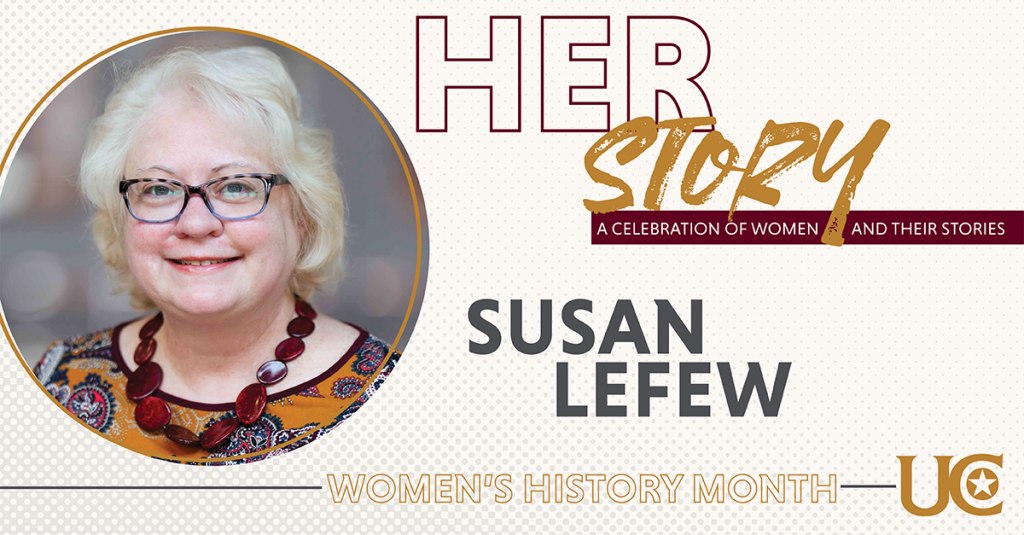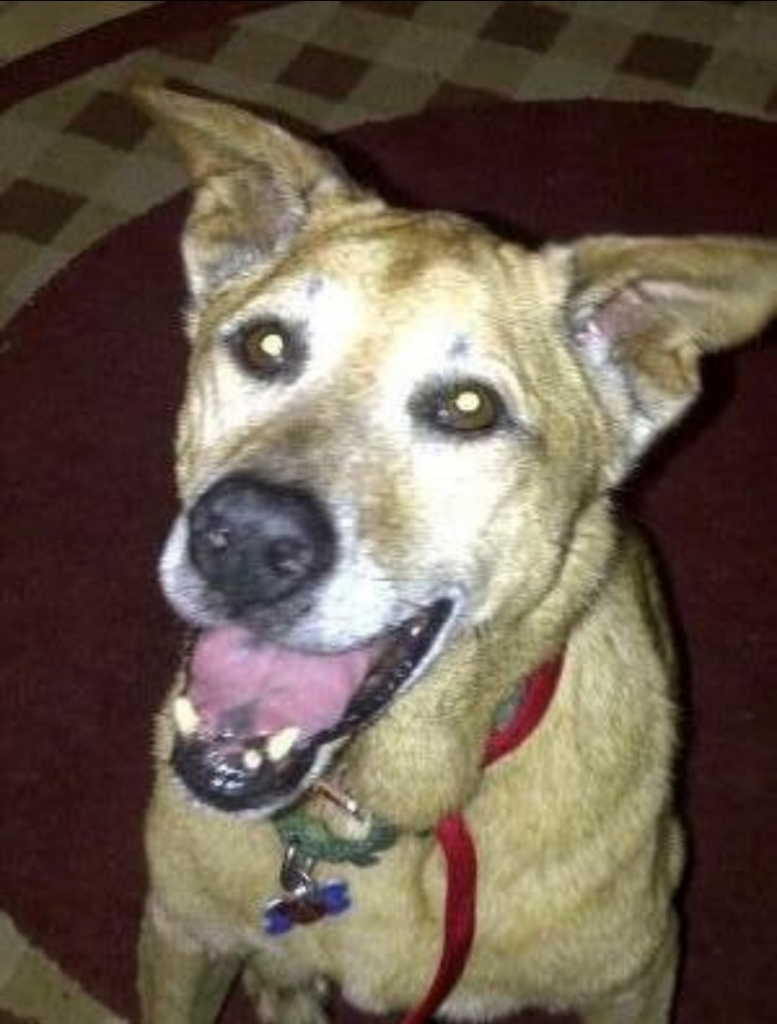HERstory | Susan Lefew

Susan Lefew is the Executive Assistant to the President at the University of Charleston
Her name was Hollie.

She lived most of her life outside on a chain, with barely enough food to survive. At one point considered “evidence” in an animal cruelty case, she bounced around shelters in the Los Angeles area. Eventually, she found her way to the Best Friends ranch in Utah, one of the largest no-kill animal sanctuaries on the planet, where she waited for years for a forever family.
My husband Jim and I first learned of Hollie when Best Friends posted pictures of her Sweet Sixteenth birthday party online – at age 16, she was the oldest dog there. She became our family member within weeks. A volunteer drove her as far as Ohio. I bought a newspaper in Ohio on the way to meet her. Headline? “Everybody Loves Hollie!” (Turns out a local gal named Hollie was in the Olympics… I took it as a sign!)
Hollie was the most lovable, goofiest, happiest dog ever. After all she endured, and as she struggled with health issues, she had a twinkle in her eye and a happy way about her. All she wanted to do was eat, nap, snuggle with her new canine brothers, and be petted. She lived only six months more, yet they were six months of being spoiled, pampered, and most of all, loved.
We’d always had dogs. But Hollie is the dog that started our journey of taking in elderly and disabled dogs no one else wanted. She turned me from being a normal dog owner into “that crazy old dog lady!”
After Hollie passed, Jim and I took a volunteer-vacation to the animal sanctuary in Utah where she’d lived. (We told ourselves we weren’t going to come home with a dog… so we didn’t… we came home with TWO!) The experience was life-changing.
Not long after, I left a corporate job and went to work as the Volunteer Coordinator for the Kanawha Charleston Humane Association (KCHA). The new administration there – at that time headed by UC alum Chelsea Staley, who became my mentor – totally revamped the shelter into a lifesaving organization. Check out the national award Chelsea won here:
When I started working at UC, it was amazing how many students and employees I already knew — they had been volunteers at the animal shelter!
We’ve adopted dogs who are blind, insulin-dependent diabetics, injured, diseased, hard-of-hearing, arthritic, escape artists (don’t get me started on how many times our elderly beagle found her way out of the yard to frolic with her deer pals!), and just plain old.
How do they find us? Lots of ways. Some come from the shelter or rescue groups. One was in an animal hoarding situation that only a few dogs survived. Some were just happenstance – like a random couple I ran into in a parking lot who’d lost their home and couldn’t find a new place that would accept the dog they loved so much. She became a member of our family right there in the parking lot (we stayed in touch with the couple, sharing photos and stories until she passed).
The latest sweet addition to our elderly pack is unfortunately a sign of the times: His owner died from Covid-19.
People ask, “How can you take in old dogs when you know they won’t live long?” Honestly, that part never gets any easier. Tears flow. You become acutely aware of how short and precious life is – for all of us. We take comfort in the fact that, regardless of prior circumstances, the last few months or years of their lives are comfortable, happy, and loved. And for every dog that passes away, space opens up in our home (and hearts) to take in another. The cycle continues.
Some call us selfless for taking in the old pups. While appreciated, I tend to disagree. Living with and loving these dogs is a selfish act on my part. They give me more joy than almost anything in the world.
So for HERstory, I’d like to thank sweet Hollie for changing my life for the better.
PS If you’d like to help animals by volunteering, fostering, adopting, or by sending supplies or money, we recommend KCHA, Dog Bless, and the Itty-Bitty Kitty Committee locally, and the Best Friends Animal Society based in Utah, which is a nationwide organization.